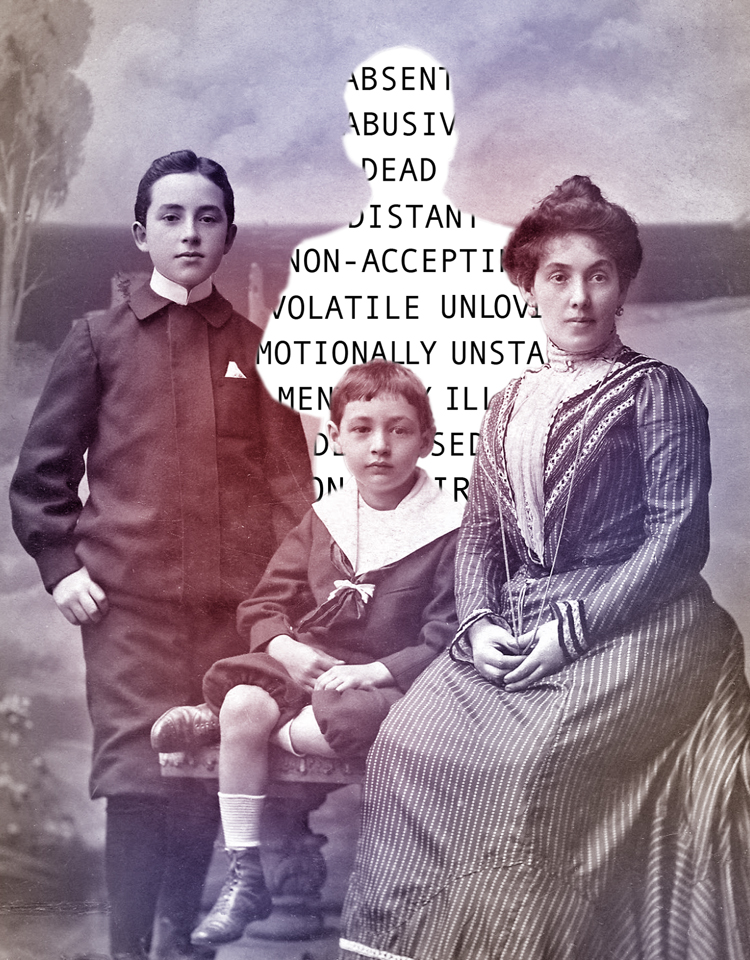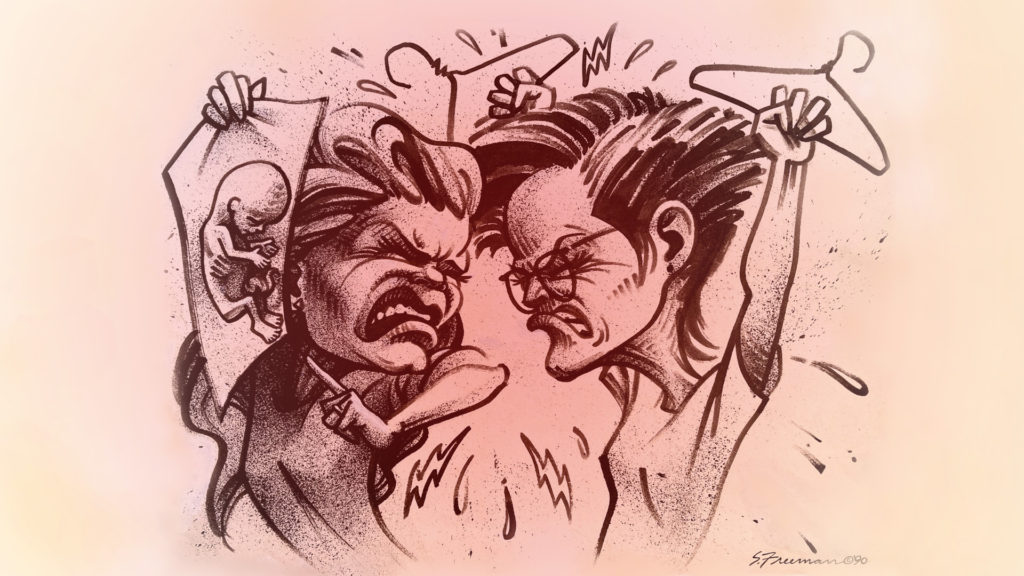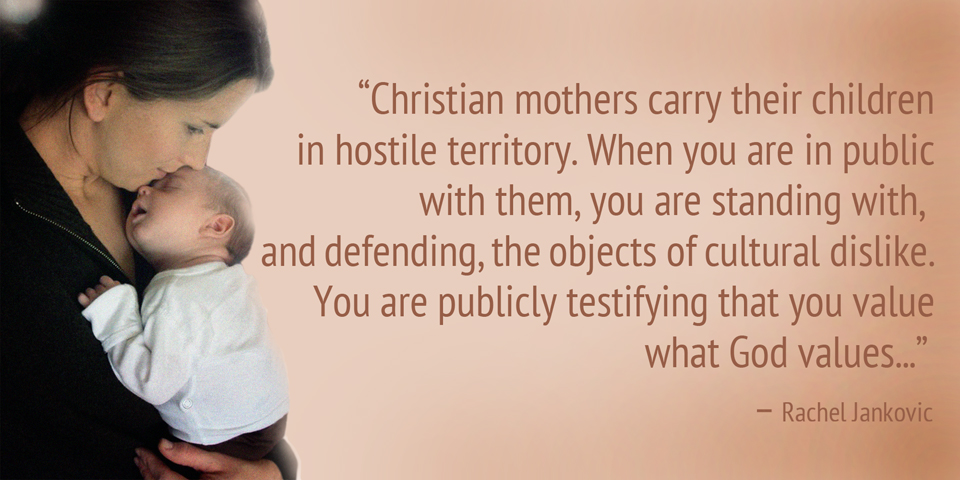
Have you ever wondered about the personal histories of people who have influenced the world in negative ways, philosophically or politically? I have. I’ve harbored a long-held suspicion that influential people who have shaped the world for the worse have generally done so from a position of personal woundedness.
The point of the question is not to establish a reason to judge people or to create division. But I think it’s an interesting and significant question. If anything, establishing such a connection may help foster understanding.
It may also shed light on issues that we may assume to be intellectual issues but which may in fact originate with psychological issues rooted in personal history.
In my opinion it also underscores the importance of marriage, loving family, and the meeting of the relational needs of our fellow human beings.
I’ve finally gotten around to doing a little research, and what I’ve learned is fascinating. We know the names and contributions of world-shapers, but what is less known is that, almost without exception, the stories of those who’ve made a negative impact are often deeply tragic.
Who is to Say What is “Negative”?
This is a fair question. Let me hasten to add a caveat here. I am unapologetically biased in my opinion about what constitutes a “negative influence” in the world. Justifying my opinion is probably a topic for a separate post. I recognize that some may consider what I see as a negative contribution to be a positive one. I also recognize that the contribution of many the folks mentioned below is mixed.
However, I don’t believe it matters. Regardless of what one think about a person’s contribution to the world, the facts of his or her personal history remain, and, I believe, shaped the course of that person’s life.
Following is a list of people who have shaped the world in the modern era; especially in the world of academia. There is overlap in these categories as most of these people are/were atheists.
Atheist thinkers
In a recent movie review I mentioned the connection between well known atheists and the “father wound.” Psychologist Paul Vitz has written a book on this connection entitled, “Faith of the Fatherless,” which I recommend. Here are arguably the most notable atheist names in history:
Friedrich Nietzsche (1844-1900)
Popularly known for his pronouncement, “God is dead.” Nietzsche’s father, to whom he was very attached, died just before his fifth birthday. After his father’s death he lived in a religious household consisting of his mother, sister, paternal grandmother, and two paternal aunts, until he went away to school at age 14.
Bertrand Russell (1872-1970)
Prominent British atheist philosopher and author, notably published a collection of essays entitled, Why I Am Not a Christian. From an aristocratic family, Russell’s mother died when he was two years old. His father died two years later. Russell was then raised by his paternal grandparents, Lord John Russell and Lady Russell. However, his grandfather died when he was six years old, leaving him to be raised by his puritanical grandmother and a succession of nannies.
Jean-Paul Sartre (1905-1980)
Influential 20th century French atheist philosopher, playwright, and novelist. Sartre’s father died when he was 15 months old. He grew up very close and emotionally invested with his mother. When his mother remarried in Sartre’s 12th year, she moved into an apartment with her new husband, and Sartre stayed with his grandparents with whom he was not close.
Albert Camus (1913-1960)
French atheist philosopher, author, and journalist. His father died in battle during World War 1 when Camus was 1 year old. Camus was raised by his mother, who was illiterate and cleaned houses for a living, and subsequently grew up in an economically depressed environment. In 1937 Camus was denounced as a Trotskyite and expelled from the French Communist Party, at which time he joined the French anarchist movement.
Madalyn Murray O’Hair (1919-1995)
Perhaps America’s best-known atheist before her death, she led the lawsuit to successfully ban prayer in public schools during the 1960s. According to her son, Madalyn hated her father and unsuccessfully attempted to kill him on at least one occasion. The reason for this intense hatred was never disclosed.
Richard Dawkins (1941- )
British “New Atheist,” evolutionary biologist, and author. A critic of all religion and especially Christianity, Dawkins is on record stating that the teaching of Christian doctrine to children is child abuse. He attended a religious boarding school at age 9 and experienced sexual abuse at the hands of his Latin master while separated from his parents.
Christopher Hitchens (1949-2011)
British “New Atheist,” journalist, and author of God is Not Great: How Religion Poisons Everything. Hitchens grew up in an intact family and also went off the boarding school at age 8. His father was a naval officer and Hitchens claims to have “few clear memories of him,” referring to him as “the Commander.” He was close with his mother, who eventually had an affair with a former Anglican priest. The two lovers subsequently ended their lives together in a suicide pact.
Daniel Dennett (1942- )
American “New Atheist” philosopher, writer, and cognitive scientist. Dennett’s father worked as a counter-intelligence agent for the US government. The family moved to Lebanon during World War 2. His father died in an unexplained plane crash while away on a Middle East mission when Dennett was 5 years old.
Political leaders
Vladimir Lenin (1870-1924)
Leader of the Bolshevik Revolution and architect of the Soviet state. Third of six children in a happy family, when Lenin was 16 his father died of a brain hemorrhage. He renounced his belief in God soon thereafter. 5 months later his elder brother was hanged for his part in conspiring against the Tsar.
Joseph Stalin (1879-1953)
Soviet dictator, orchestrator of the Great Purge against political rivals, and perpetrator of the worst man-made famine in human history. The precise number is unknown, but by some estimates Stalin presided over the deaths of 20 million people. Originally trained for the priesthood, in his 30s Stalin rejected his family name (Djugashvili) and changed it to the Russian word for “man of steel.” Stalin had a very harsh upbringing. His father was an alcoholic and often severely beat him and his mother.
Mao Zedong (1893-1976)
Communist leader and father of the People’s Republic of China. Mao presided over the Great Leap Forward of 1958 (the ensuing famine of which caused the deaths of some 30 million peasants,) and the Cultural Revolution of 1966 (which resulted in some million and a half deaths and destroyed much of China’s cultural heritage.) Mao reportedly hated his father, who was a tyrant and regularly and severely beat him and his three siblings.
Adolph Hitler (1889-1945)
Leader of the Nazi Party, Chancellor and fuehrer of Germany, and initiator of World War 2. Hitler presided over the Nazi Holocaust during which 6 million Jews were executed – nearly two thirds of Continental Europe’s Jewish citizenry. Additional victims included communists, the mentally and physically disabled, homosexuals, blacks, Jehovah’s Witnesses, and political opponents. As a boy, Hitler’s father severely and regularly beat him; “every day” according to his sister. He was one of 6 children, 3 of whom died in infancy. As an 11 year old boy Hitler was deeply affected by the death of his younger brother, Edmund. Hitler’s antagonistic relationship with his father ended 3 years later when his father died unexpectedly. There was no father figure in his life after this.
Opinion shapers
Sigmund Freud (1856-1939)
Neurologist and founder of psychoanalysis. While his father was not abusive, apparently Freud considered him to be a weak man and a disappointment; lacking in courage and unable to provide for his family. Furthermore, according to Paul Vitz, in two letters as an adult Freud writes that his father, Jacob, was “a sexual pervert and that Jacob’s own children suffered as a result.”
Charles Darwin (1809-1882)
British naturalist and author of the vastly influential On the Origin of Species by Means of Natural Selection, or the Preservation of Favoured Races in the Struggle for Life. The pure naturalism of microbes-to-man evolutionary theory made materialism (atheism) an intellectually respectable option. Darwin’s mother died when he was 8. He was raised by his sisters until he went off to school at age 9. His relationship with his imposing father was ambivalent. He once wrote, “To my deep mortification my father once said to me, ‘you care for nothing but shooting, dogs and rat catching and you will be a disgrace to yourself and all your family’.”
Feminist leaders
Margaret Sanger (1879-1966)
American birth control activist, sex educator, author, nurse, and racist eugenics proponent. Sanger opened the first birth control clinic in the US and founded the American Birth Control League, which became the Planned Parenthood Federation of America. Sanger grew up in an impoverished home headed by an alcoholic father. She was the 6th of 11 children. Her mother went through 18 pregnancies in 22 years, (including 7 miscarriages,) before dying at the age of 40.
Gloria Steinem (1934- )
American feminist, political activist, and journalist. Steinem was a leading figurehead for the feminist movement in the 60s and 70s and co-founder of Ms. Magazine. Perhaps her best known quote is, “If men could get pregnant, abortion would be a sacrament.” When Steinem was 10 years old her parents divorced and her father left, leaving her to care for her mentally ill mother.
Bella Abzug (1920-1998)
American feminist, lawyer, congressional representative, and social activist. Abzug was also a leading activist during the 60s and 70s. In her later life she became an influential leader at the United nations working to support womens’ equality around the world. Abzug’s father died when she was 13. She went to the synagogue every morning for a year to recite the traditional mourner’s prayer. This was in defiance of the orthodox synagogue’s tradition that only sons recite the prayer.
Shulamith Firestone (1945-2012)
American feminist thinker and author. Firestone is less well known than the others listed here but she was a central figure in the early development of radical feminism. Her book, The Dialectic of Sex, published in 1970, has continued to be influential in feminist thought, and is also considered to be an early “post-genderist” work. In the book she argues that it is the biological role of pregnancy, childbirth, and child-rearing that keeps women oppressed. She envisioned the abolition of the nuclear family with its oppressive parent-child relationship, and doing away with the maternal instinct. She envisioned artificial wombs, and collective child-rearing. Not surprisingly, Firestone’s relationship with her controlling, orthodox Jewish father was wildly antagonistic.
Summary
One would be justified in asking if fatherlessness was typical in past centuries, or if the family dynamic was dysfunctional for most people. Author Paul Vitz answers this question by providing a contrasting list of theistic thinkers and influencers. In virtually every case these theists were raised in nurturing, loving environments. When a parent was lost at an early age, relatives or friends stepped up as affirming father figures. Examples Vitz gives include Blaise Pascal, Edmund Burke, William Paley, William Wilberforce, Soren Kierkegaard, G. K. Chesterton, Albert Schweitzer, Karl Barth, and Dietrich Bonhoeffer.
It would be wrong to assume that all atheists today grew up with a dysfunctional parent relationship. Atheism has now become mainstream and academically respectable. However, I remain convinced that children have a God-ordained right to be nurtured by their married biological parents whenever possible. If you are a parent I hope these stories will strengthen your resolve to stay a loving course in your marriage and parenting.
Happy Father’s day to all the dads reading this! May you be a blessing to your children!



